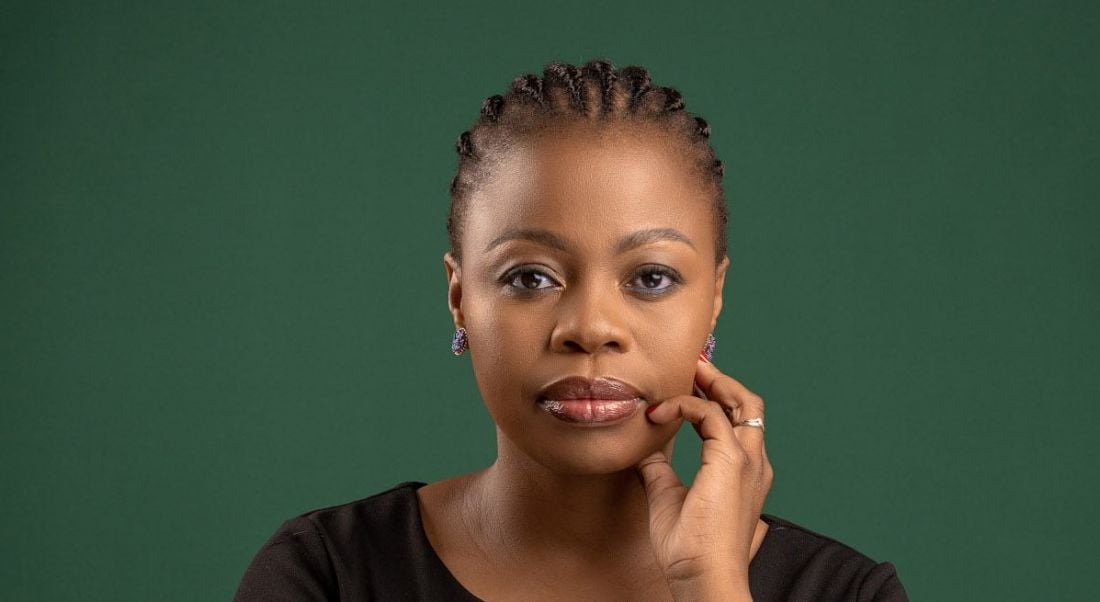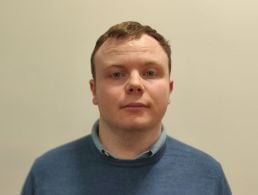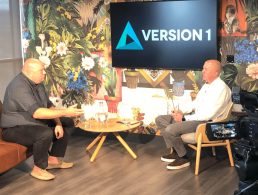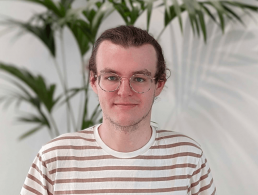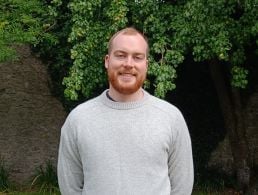Having come to Ireland to study, Mamonaheng Koenane now wants to give back to people in her home country by setting up a tech school in Lesotho.
While there is much talk about the tech talent shortage at an industry level, there is also a digital skills gap when it comes to education around the world. This is an area where Mamonaheng Koenane wants to make an impact.
Koenane was born and raised in Lesotho, a small mountainous country completely landlocked by South Africa. Growing up, she went to a multinational school, which is where her desire to travel began.
“I was only able to see the life I dreamed of on television and by chance I stumbled on a book my uncle had picked up on the streets. The book contained a list of different schools in Europe and without my parents’ awareness I started applying by post to the schools.”
While Koenane was accepted at the Royal School Wolverhampton in England, her parents could not afford the fees.
“As chance would have it, a friend of my parents who had been to Europe for his studies offered to assist me in my endeavour. It was a long process that required a lot of back and forth, but I eventually got accepted at Wilson’s Hospital School in Multyfarnham in Ireland,” she said.
“I had never been away from my family nor travelled by airplane before, and on that first trip the turbulence was so bad I thought I was never going to fly again. Eventually I landed in Dublin, Ireland, to do my Irish Leaving Cert.”
Koenane went on to study computer science at Griffith College Dublin and then on to a bootcamp at Austin Coding Academy in Texas. She also did a short course on geoinformatics at the University of Lisbon in Portugal and then got involved in a wide range of diversity and inclusion projects in various tech companies.
Returning to Lesotho
However, Koenane was constantly “haunted by a dream” of returning to Lesotho and starting a coding school.
“This dream for me was a way to give back and bring value to my people. It might sound silly, but I would literally play the song We Are the World by USA for Africa on repeat and get so emotional as I visualise myself in my home country creating a meaningful change through tech.”
Sometime in 2017, Koenane went home to visit her parents for a few weeks. While she was there, she visited a nearby school, where she found that the teachers were struggling to teach basic computer skills because they were under-resourced.
‘The teachers have never even touched a computer mouse and yet computers are part of the curriculum’
– MAMONAHENG KOENANE
“They were without a computer and textbooks. I volunteered with them and the only thing I had was a chalkboard. I was not planning on staying but this was a defining moment, my dream was tugging at me, do something now or it might never happen. I decided to stay.”
Koenane later met with six other women who shared a similar understanding, and together they decided to form the first women-focused and women-led start-up tech school in Lesotho. It was under this organisation where Koenane got more involved in the tech environment of Lesotho.
A classroom in Lesotho. Image: Mamonaheng Koenane
“I became an ambassador for Africa Code Week, which had me travelling and seeing the most remote areas of our country. The rest of the world is so advanced but, in my country, the teachers have never even touched a computer mouse and yet computers are part of the curriculum.”
While Koenane and the other women were busy and featured in local media frequently, she didn’t feel she was making enough of an impact. So she moved on to start Impact School.
“One of the great challenges faced by the tech industry in my country is that we are totally landlocked by an economic giant like South Africa, which makes us get overlooked. We would like Impact School to be the bridge that connects the rest of the world with the tech talent Lesotho has to offer,” she said.
The school includes a coding and robotics programme for children and Impact Digital Women, which focuses on introducing young women and girls to tech skills.
While the Impact School aims to help people in Lesotho, the nonprofit is headquartered in Dublin. “The European headquarters of most of the big tech companies of the world are in Ireland and there are a lot of start-ups as well,” said Koenane.
“For these reasons we decided to have our main offices in Ireland, which is also convenient because Ireland has always been like a second home to me and a lot of my friends – some of whom are like family – are in Ireland.”
Partnering with Silicon Valley
As well as the programmes for children and young women, Koenane said she is also working on a partnership that will see a “world-class tech centre” in the heart of Lesotho.
The centre aims to be open seven days a week and will accommodate a minimum of 100 students at a time.
“The students will have access to top-class education that will enable them to be competitive and of value on the world stage. In order to achieve this, we have partnered with a Silicon Valley-based tech school, namely Holberton School. The significance of this partnership is that the graduates will be able to work anywhere in the world,” said Koenane.
“The curriculum is set up in such a way that the students solve authentic, engaging and complex problems, which means they come out job ready and without the need to intern. Our students are in a country where English is an official language, therefore they should be able to communicate, work remotely or relocate, depending on the requirements of the employer.”
While the team has found rental space for setting up the tech centre in Lesotho, funding has proven to be a struggle. “A great challenge has been our geographical positioning, in that when reaching out to the big corporations of the world, we are directed to their nearest regional branch – South Africa. And the South African regional branch replies that it is focused on projects within the country,” she said.
“We are therefore calling out to tech companies across the world to partner with us and tap into the untouched talent of Lesotho.”
When asked about the change she would most like to see within the tech sector, Koenane quoted the phrase: ‘Talent is equally distributed, but opportunity is not.’
“The change I would like to see more of is the embracing of diversity within the world tech space. I would like to see African talent finding equal footing in the world. I would like to see Africans being considered more for funding, especially where Africans and the world have a lot to gain.”
10 things you need to know direct to your inbox every weekday. Sign up for the Daily Brief, Silicon Republic’s digest of essential sci-tech news.
